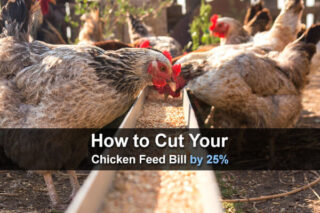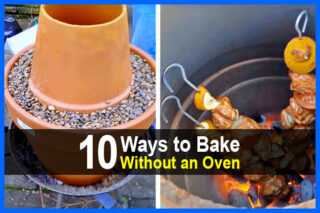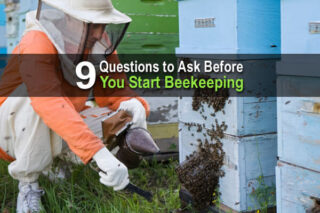Estimated reading time: 8 minutes
Protecting your livestock from disease ensures not only their health and longevity but yours as well. Some poultry illnesses spread quickly and go undetected by keepers who have not yet learned how to detect the signs of infection or injury.
Early detection is essential to not only saving the life of one bird but the entire flock if the illness is contagious. Livestock vets do typically see poultry birds as patients, but such a visit is often more expensive than purchasing a new bird. In addition to the cost factor, the vet will probably introduce chemicals into the bird via antibiotic injections.
If a member of your flock becomes ill or injured during a long-term disaster, calling the vet will not even be an option. Learning how to detect, prevent, and cure livestock ailments naturally is the best, cheapest, and potentially only option to protect your meat and egg birds.
Get into the habit of doing a quick visual inspection of the poultry flock members daily and keeping track of their food and water intake, as well as eggs produced, to help prevent the spread of illness or leaving an injury untended.
Top 5 Common Poultry Ailments
1. Scaly Legs – If you notice swelling or bumps on the underpinning of the legs, a possible deadly skin condition is present.
To treat and hopefully cure a scaly legs condition, gently rub down the legs with vaseline and increase the amount of potassium the birds are consuming, especially during the winter months.
2. Gapes – To treat this throat worm disease, pour this salt brine recipe into the mouth of the bird and then hold it upside down and gently tap it on the back to help it cough up the roundworms.
RECIPE: Mix together 1 cup of warm water, 1/8 teaspoon of salt, 1 1/2 teaspoons of sugar, 1/8 cup of baking soda. The infected bird or birds could also be fed the brine mixture by pouring it into their empty waterer.
3. Feather Plucking – This issue typically occurs when the birds do not have enough protein in their diet and/or outright boredom. The open sores caused by the plucking can cause a deadly infection – and the blood spots created by plucking can prompt bird-on-bird attacks.
To prevent or stop plucking, add more protein to the flocks’ diet and if the birds are not free ranged, place some “boredom busters” like swings, perches, and dirt baths, inside the chicken run and coop to keep them occupied.
4. Liver Problems – Issues with the liver occur most often during the spring and winter seasons, especially in larger members of the poultry and waterfowl family. A bird will have a yellow or purple coloration on its comb when a potentially deadly liver problem is developing.
Sometimes, no visible warning signs are present and the bird just suddenly drops dead of no apparent cause. To keep the liver healthy, infuse extra greens into the diet of the flock and make sure the birds have enough freedom of movement and exercise on a daily basis.
5. Fowl Pox – There is no known cure for fowl pox, but a vaccination may prevent the deadly disease. To prevent the pox from developing, keep standing water away from your chickens because the disease is spread by mosquitoes.
If the pox do develop, wash the scabs that appear around both the mouth and the eyes of the birds gently with warm water and apply an antiseptic ointment to the scabs to foster healing without breaking.
Fowl pox is second only to avian flu as the top killer of poultry birds. Outbreaks usually occur during the summer months when mosquito populations hit their peak. Quarantine any bird that may have fowl pox to stop it from spreading, and be sure to clean and disinfect anything the infected bird may have come into contact with.
Here's a common homemade treatment for Rickets that may also help to get rid of fowlpox symptoms.
Fowl Pox / Rickets Homemade Remedy
Do not let any birds that aren't infected with fowlpox eat or drink after a sick bird. Doing so will likely cause the disease to spread.
Ingredients:
- 2 tablespoons of sugar free yogurt
- 2 tablespoons of apple, grated
- 1 cooked and crumbled egg yolk
- 1 teaspoon of cod liver oil
- 1/2 teaspoon of raw honey
- 3 tablespoons of oats
- 2 tablespoons of dog or cat canned food – beef flavored seems to work best
- 2 Avian vitamin pills – crushed
Directions:
- Mix all ingredients together thoroughly and serve in place of a meal or on top of feed.
Top 10 Natural Poultry Remedies
1. Cinnamon – The anti-infectious and antibacterial components in cinnamon can help increase blood circulation in the wattles, combs, and feet of poultry birds. This is especially important during the winter months when frostbite can claim the lives of flock members by destroying the tissues in these body parts first.
For every six birds, put several pinches of cinnamon in the waterer or onto food or treats so they can consume it on a daily basis. Consider doubling the cinnamon dosage during extremely cold weather. The spice also helps to alleviate the symptoms of respiratory infections in, not just birds, but other livestock and humans as well.
2. Turmeric – This is almost always the first natural medicine ingredient when mixing up home remedies for animals and people on our survival homestead. The spice possesses powerful anti-inflammatory properties.
When treating poultry conditions I sprinkle it onto food to cure bumblefoot–chickens who have a serious condition that prevents them from holding their heads up properly. It is a superb overall immune system booster.
Sprinkle about 1/2 teaspoon of turmeric per bird onto feed or treats or into the waterer. I do this at least once a week as a preventative and up the dose slightly when treating an illness or infected wound.
3. Black Pepper – This spice quickly helps to flush toxins out of the body and increases the absorption of nutrients in feed and healthy treats. Black pepper possesses anti-inflammatory, antioxidant, and antibacterial properties, as well. Poultry birds, chickens in particular, are prone to respiratory problems during cold and damp weather.
To prevent such infections as much as possible, put 1 teaspoon of black pepper in a 5-gallon waterer once or twice a week. Increase to about double this dosage when treating an illness or infection.
4. Oregano – This tasty herb is a great immune system booster and also boasts antibiotic properties. Toss up to 1 teaspoon of oregano onto daily feed rations or into a waterer to prevent or treat E. coli, respiratory problems, avian flu, and blackhead disease.
If treating avian flu or E. coli, consider using the more potent oregano oil to introduce the spice more rapidly into the bird’s system. The dried herb may clog up fountain style or drip release waterers.
5. Apple Cider Vinegar – The vinegar boosts the calcium absorption in poultry birds, especially in laying hens. The added calcium infusion will make laid eggs firmer and help the shell to develop properly, especially during the warm weather months.
Pour 1 teaspoon into the flocks’ waterer twice a week during the summer and once a week during the other seasons as a preventative.
6. Garlic – Either powdered or fresh garlic can be sprinkled onto feed to help prevent tick, mite, and lice infestations. It may also act as a natural dewormer.
When using garlic as a dewormer, add 1 teaspoon per bird to the feed every day for 60 days to ensure all the worms have exited the body. Diatomaceous earth is also a great natural dewormer that can be sprinkled in the same dosage and for the same time frame onto flock feed.
7. Ginger – Poultry birds usually gobble up ginger as a favorite treat. It can also be crumbled or powdered and sprinkled on top of feed. Ginger has natural immune system boosting and antifungal properties. It is also helpful in the treatment of congestion and respiratory infections.
Give the birds a couple of pinches of ginger up to twice a week as a preventative or up to four times a week when treating a health issue. Ginger consumption may help hens lay larger eggs with stronger shells.
8. Cayenne Pepper – This pepper is another great overall parasite and worm remover. Cayenne pepper may also boost the production of eggs during cold weather months.
Sprinkle up to 1 teaspoon onto feed or into the waterer twice a week as a preventative or up to four times a week during a parasite infestation.
9. Dried Calendula Flowers – The flowers often become a favorite treat when either hand fed or placed on top of feed. Calendula may help prevent soft egg shells, increase blood flow to extremities, and treat infections caused by typical poultry parasites.
10. Summer Electrolyte Tea – Make this tea for the birds if they are suffering from heat-related issues (which are common in many breeds of chickens during the summer and during lung infections).
Give the tea once to twice a week to prevent heat exhaustion or stroke during the summer or daily if treating a respiratory illness. Here is the recipe.
Electrolyte Tea Recipe
- Boil 7 cups of water and 3 teaspoons of oregano.
- After removing the pot from the stove, stir in up to 1/2 teaspoon of any or all of the following ingredients: chamomile, cinnamon, cayenne pepper, peppermint, black pepper, lavender, and turmeric.
- Once the mixture is cool enough to drink, pour it into an empty flock waterer. The mixture can also be poured into a bowl if the spices appear to be clogging the waterer.
The majority of poultry illness can be prevented or treated successfully if the coop and run are kept clean, new or sick birds are immediately isolated, the feeder and waterer are regularly cleaned, and the birds live in a spacious environment with enough boredom busters to deter destructive behavior.
Stay tuned for part two, which will be up in one week.











